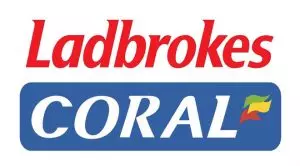 A submission to the UK Competition & Markets Authority (CMA) has been filed by the British Horseracing Association (BHA), which had shared its concerns related to the merger of Ladbrokes and Gala Coral. The Chief Executive of BHA Nick Rust has written to the CMA to state that the proposed merger of the two companies could have a negative impact on the consumer choice in both the racing and greyhound industries of the UK.
A submission to the UK Competition & Markets Authority (CMA) has been filed by the British Horseracing Association (BHA), which had shared its concerns related to the merger of Ladbrokes and Gala Coral. The Chief Executive of BHA Nick Rust has written to the CMA to state that the proposed merger of the two companies could have a negative impact on the consumer choice in both the racing and greyhound industries of the UK.
An investigation of the planned tie-up was started by the CMA in December 2015. Then, in May this year, the watchdog made an announcement that the two parties may be forced to collectively dispose of between 350 and 400 shops in order for the £2.3-billion merger to be finalised. In addition, a total of 659 local areas were pointed as areas where an eventual merger could end up with massive loss of competition and heavy deterioration in the customer odds.
The letter of Nick Rust was addressed to the Inquiry Chair for the tie-up – Martic Cave – and stated that according to the British Horseracing Association, the investigation so far had not taken into consideration the possible impact that the proposed merger could have on the industry. Moreover, Mr. Rust stated that no further contact was received from the Inquiry Group since February, when the BHA submitted to the second phase of the investigation.
The Head of BHA also said that one of the main UK Government’s goals was to reach such an outcome that would benefit not only the betting and racing industries, but also the wider economy and consumers.
This is not the first time when Gala Coral and Ladbrokes have made an attempt to merge. The preceding tie-up try of the two operators was made in 1998, but unfortunately it was blocked by the Monopolies and Mergers Commission (MMC). BHA’s CEO Nick Rust, who is a former senior executive of both Ladbrokes and Gala Coral, referred to the previous ban saying that the leveraged buyout at the time would have been 30.5%, while the merger entity today would have a much larger LBO share of between 40-45%.
According to him, the market share that the two major operators would have after an eventual merger is finalised would be about 70%, which is well above the 60% that the companies would have had in 1998 and which were described by the MMC as undesirable at the time.
- Author


